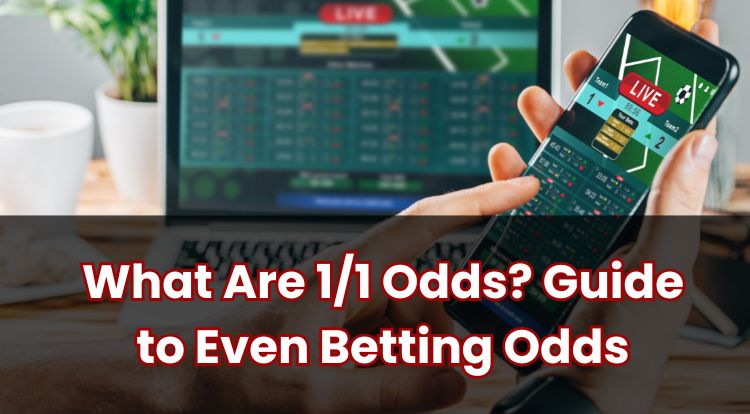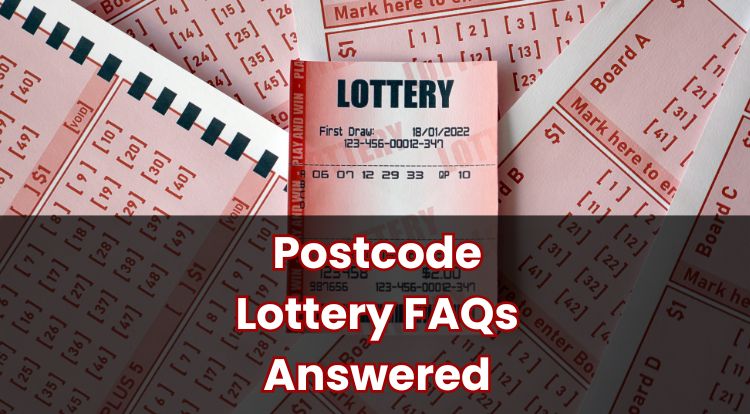What Does Evens Mean In Betting?
If you’ve ever placed a bet or are just curious about betting terms, you might have come across the term “evens” at some point. It’s a straightforward concept, yet can feel a bit puzzling at first.
In this blog post, you’ll find a guide to understanding “evens” in betting. We’ll explain how it works in a clear and accessible way, whether you’re completely new to the topic or just revisiting the basics.
Any betting activity should be done responsibly and within personal limits – let’s take a closer look at evens and what the term actually means.
What Is an Evens Bet?
An “evens” bet, also known as “EVS” or an “even money bet,” refers to odds where the potential profit is equal to the amount you stake. In other words, for every unit you wager, you stand to gain one additional unit in profit if the bet is successful. This type of bet is often seen as straightforward and easy to understand, making it popular among many new and experienced bettors.
Despite its simplicity, it’s important to recognise that even-money bets still carry risk. No outcome is guaranteed, and it’s entirely possible to lose your full stake. That’s why it’s essential to approach betting with a clear strategy – keeping track of your activity, setting personal limits, and never wagering more than you can afford to lose.
How Does an Evens Bet Work?
In fractional odds, an even bet is represented as 1/1, and it’s a format commonly encountered across a wide range of sports, including popular markets like football, tennis, and horse racing.
The straightforward nature of these odds allows players to easily understand how much they stand to win, which can help to make the overall experience more transparent.
However, it’s important to remember that the actual chances of winning depend on many factors – such as form, strategy, and unpredictable variables. Just because the odds appear even doesn’t necessarily mean the probabilities are too. Setting personal limits and betting with an understanding of the broader context can help to create a more responsible approach to gambling.
Evens Bet Example
Imagine you’re interested in a football match where Team A is playing against Team B. You notice the bookmaker has offered even odds on Team A to win.
You decide to place a bet of £10 on Team A. If Team A wins, your bet at evens will return your stake plus an equal amount in winnings. This means you would receive a total of £20. Your original £10 stake is returned to you, alongside £10 gained in winnings.
This example shows how your potential return relates directly to your stake, offering a straightforward way to engage with betting. Always ensure that any betting activity is carried out responsibly, and for entertainment rather than any potential financial gain.
What Are Evens Betting Odds In Decimals?
In decimal format, even money odds are displayed as 2.0. This number reflects the total return you would receive from a winning bet, including both your original stake and any profit. In simple terms, it means that if a bet placed at odds of 2.0 is successful, the return would be twice the amount staked.
Decimal odds are widely used across many betting platforms and are often appreciated for their simplicity. They show the full possible return rather than just the profit, which can make it easier to understand potential outcomes. This clarity allows individuals to see at a glance what a successful bet might return, which can support more informed and considered decision-making.
Is Evs The Same As EV In Betting?
While “Evs” and “EV” may sound similar, they refer to two separate concepts within the context of betting.
“Evs” is short for “evens,” a term used to describe odds where the potential profit is equal to the amount staked.
On the other hand, “EV” stands for “Expected Value.” This is a more analytical concept that involves assessing the long-term average outcome of a bet based on probability. Expected Value takes into account both the potential gains and losses, along with their respective likelihoods, to help evaluate whether a bet might offer value over time.
While “Evs” focuses on the potential return from a single bet, “EV” looks at possible outcomes from a broader, more statistical perspective. Understanding these distinctions can support a more informed and considered approach to gambling.
**The information provided in this blog is intended for educational purposes and should not be construed as betting advice or a guarantee of success. Always gamble responsibly.




